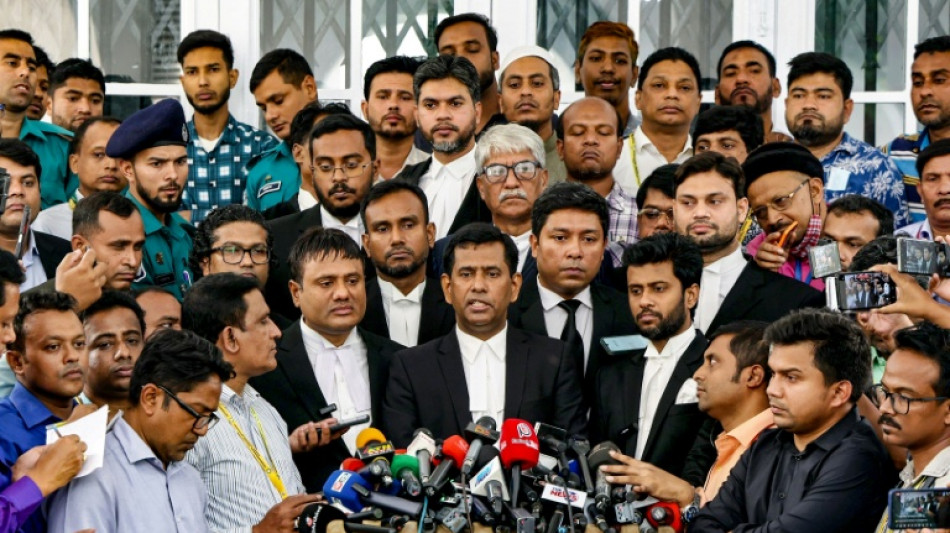

Bangladesh opens fugitive ex-PM's trial over protest killings
Fugitive former prime minister Sheikh Hasina orchestrated a "systemic attack" to try to crush the uprising against her government, Bangladeshi prosecutors said at the opening of her trial on Sunday.
Up to 1,400 people were killed between July and August 2024 when Hasina's government launched its crackdown, according to the United Nations.
Hasina, 77, fled by helicopter to her old ally India as the student-led uprising ended her 15-year rule, and she has defied an extradition order to return to Dhaka.
The domestic International Crimes Tribunal (ICT) is prosecuting former senior figures connected to Hasina's ousted government and her now-banned party, the Awami League.
"Upon scrutinising the evidence, we reached the conclusion that it was a coordinated, widespread and systematic attack," Mohammad Tajul Islam, ICT chief prosecutor, told the court in his opening speech.
"The accused unleashed all law enforcement agencies and her armed party members to crush the uprising."
Islam lodged charges against Hasina and two other officials of "abetment, incitement, complicity, facilitation, conspiracy, and failure to prevent mass murder during the July uprising".
- 'Not an act of vendetta' -
Hasina, who remains in self-imposed exile in India, has rejected the charges as politically motivated.
As well as Hasina, the case includes ex-police chief Chowdhury Abdullah Al Mamun -- who is in custody, but who did not appear in court on Sunday -- and former interior minister Asaduzzaman Khan Kamal, who like Hasina, is on the run.
The prosecution of senior figures from Hasina's government is a key demand of several of the political parties now jostling for power. The interim government has vowed to hold elections before June 2026.
The hearing is being broadcast live on state-owned Bangladesh Television.
Prosecutor Islam vowed the trial would be impartial.
"This is not an act of vendetta, but a commitment to the principle that, in a democratic country, there is no room for crimes against humanity," he said.
Investigators have collected video footage, audio clips, Hasina's phone conversations, records of helicopter and drone movements, as well as statements from victims of the crackdown as part of their probe.
The ICT court opened its first trial connected to the previous government on May 25.
In that case, eight police officials face charges of crimes against humanity over the killing of six protesters on August 5, the day Hasina fled the country.
Four of the officers are in custody and four are being tried in absentia.
The ICT was set up by Hasina in 2009 to investigate crimes committed by the Pakistani army during Bangladesh's war for independence in 1971.
It sentenced numerous prominent political opponents to death and became widely seen as a means for Hasina to eliminate rivals.
Earlier on Sunday, the Supreme Court restored the registration of the largest Islamist party, Jamaat-e-Islami, allowing it to take part in elections.
Hasina banned Jamaat-e-Islami during her tenure and cracked down on its leaders.
In May, Bangladesh's interim government banned the Awami League, pending the outcome of her trial, and of other party leaders.
J.Romagnoli--IM



